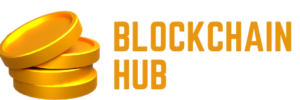Share this post:
How can businesses absorb disruptive impact and begin to integrate these new business models in existing and new streams of business opportunity?
NFTs have taken the world by storm. Rejuvenating the blockchain movement started by Bitcoin, followed by smart contract platform Ethereum, NFTs seem to be a natural progression in the explosion of asset tokenization, of all kinds of things we value.
NFT stands for non-fungible token and to understand NFT we need to understand the concept of fungibility!
What is an NFT?
An asset is considered fungible when it is considered mutually interchangeable with another identical item. For instance, money which can be changed for other forms and modality or other purposes. In the crypto-sphere, most native assets such as Bitcoin and Ethereum serve the same function, besides its core purpose or providing utility they are also fungible tokens. By this definition non-fungible tokens, or NFTs, invert the definition of fungibility and provide a unique perspective of other things that are also as valuable to us as money and can be measured in fungible units.
See how blockchain adds value to trade and finance
NFTs solve the issue of uniqueness and a one-of-a-kind asset type. Examples include not only the popular collectable such as digital art, music, and other digital collectibles — which we value and treasure — but can also include other practical objects such as digital IDs, healthcare records, credit history and others, which are unique, valuable to us, and serve a purpose in digital networks powered by blockchain.
So, while blockchain is the underlying technology that provides a transaction system by enforcing a digital ledger and enforces rules of engagement via smart contracts, it also extended tenets such as immutability, transaction record and transparency to facilitate verification and asset movement with an embedded trust system.
What can NFTs be used for?
NFTs are also a type of token and asset class online — other tokenized assets can include stable coin, security tokens, tokenized securities and others. NFTs are unique in that they can be tradable (art and collectibles) or hypothecated (healthcare records or digital history) and this is where things get interesting. As NFTs are also things of value and make their way into marketplaces they need a fungible token like a utility coin or stable coin for derivation of value in measurable terms. These marketplaces will usually need integration with either banking rails or existing crypto-provided rails such as digital exchanges or a DeFi ecosystem to facilitate trade and transfer.
I address the complex issue of a fleeting and rapid rise of NFTs, after a similar meteoric phased rise of decentralized finance (DeFi), creating amazing innovations with the immense promise of democratization, new business models, and global marketplaces with global access — all fueled by the basic premise of decentralization and fundamental constructs of tokenization and wallets. NFTs may be characterized as unique one-of-a-kind cryptographic tokens with some intrinsic value to the holder (ID, health record) or a market (art, collectible).
Where are NFTs going next?
NFTs that have an intrinsic value and are essentially tokens that are simple proof-validations of the existence, authenticity, and ownership of digital assets. Fungible tokens are valued on various bases, such as the sum total of economic activity in the network (cryptocurrency), utility (smart contracts and transaction network processing), assigned values (as in stable coins and security tokens), and so on. NFTs represent both transferable entities and non-transferable tokens that we value.
We begin to realize the promise of blockchain that envisioned digitization, tokenization and democratization of finance by enabling networks that are capable of moving value with reduced friction and intermediation. The question to ponder now is: how do businesses, individuals and enterprises understand the transformative and disruptive impact and begin to integrate these new business models into existing and new streams of business opportunity?
 Turning strategy into business outcomes
Turning strategy into business outcomes
IBM Blockchain Services can help bring your ideas to life. Explore the use of blockchain and digital assets in your business.
Connect with a blockchain services expert



